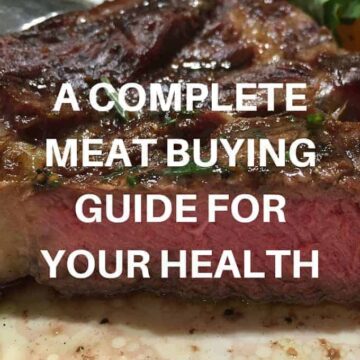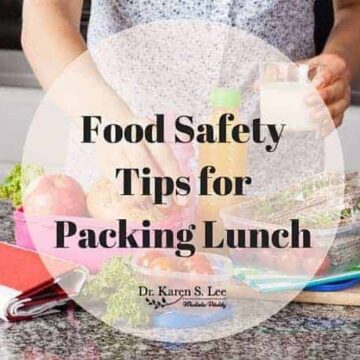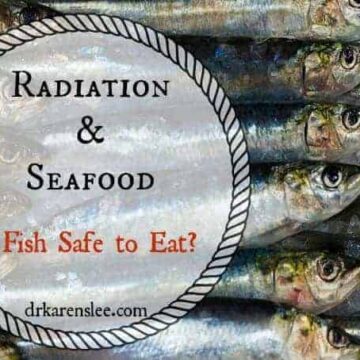I thought deciphering egg carton labels was hard. Trying to figure out if an egg is contaminated with Salmonella is im-po-ssi-ble.
Over 300 million eggs have been recalled after hundreds of people were sickened by eating eggs contaminated with Salmonella.
How many times have we heard this type of story line before? Ugh.
Wright County Eggs of Galt, Iowa voluntarily recalled over 300 million eggs after 266 illnesses and many more were found to be related to the eggs since June, possibly earlier. Minnesota had seven illnesses, Colorado saw 28 cases in June and July. Suspicious cases have also been reported in Arizona, Illinois, Nevada, North Carolina, Texas and Wisconsin.
According to AP news...
This particular Salmonella outbreak seems to be related to restaurants in California, Colorado, Minnesota and North Carolina. They are not necessarily breakfast places — it's possible some got sick from eating a salad dressing that had a raw egg in it, or eating soup with an undercooked egg dropped in... In North Carolina, a cluster of about 80 illnesses in April were linked to meringue-containing chocolate pie and banana pudding served at a Durham barbecue restaurant. Eggs from Wright County Egg were linked to illnesses in the four states. The eggs were distributed around the country and packaged under the names Lucerne, Albertson, Mountain Dairy, Ralph's, Boomsma's, Sunshine, Hillandale, Trafficanda, Farm Fresh, Shoreland, Lund, Dutch Farms and Kemp. It wasn't immediately clear when the eggs were produced and distributed.
What is Salmonella?
There are over 2000 different types of Salmonella but about only a dozen cause gastroenteritis, otherwise known as food poisoning. The most common symptoms are cramps and diarrhea but in some cases, fever and headache can also occur. It is not a deadly disease except in some developing countries where Typhoid Fever can occur. Food poisoning symptoms can last from two to seven days and there are no antibiotics to kill the bacteria. Gastroenteritis caused by Salmonella is most often caused by eating raw or undercooked meat, poultry, eggs or egg products. The incubation period ranges from several hours to two days, meaning, symptoms can start several hours to two days after you ingest contaminated foods.
How do Salmonella infect the eggs?
Usually, eggs are infected with Salmonella through fecal matter and since Salmonella is present in intestines of humans, animals, including chickens, it can be passed to the eggs when chickens sit on them or during processing the eggs in contaminated facilities, like factory farms. Stringent disinfecting practices since 70's have reduced the number of Salmonella outbreak significantly. But there are other ways eggs can be infected.
Salmonella can infect the host, chicken ovaries, and infect the eggs. And if one chicken is infected, there might others on the farm that might be infected. And the hard part is you can't tell if a chicken has been infected. Harder still, chickens can lay normal eggs and lay one infected egg. So as you can see, it is almost impossible to detect Salmonella outbreak until it's too late. The egg industry regularly tests chickens for Salmonella infection for this reason, but as you can see, nothing is fool proof.
So how can you prevent from eating Salmonella contaminated eggs?
By looking at the egg, you can not tell if it's been contaminated. Also, it doesn't matter if eggs are labeled, "free roaming", "organic", "natural", or "kosher". Salmonella doesn't discriminate. The only 100 % fool proof method of avoiding Salmonella infection is to thoroughly cook the eggs. Do not eat any food products that contain raw eggs like Caesar Salad dressings, sauces, and even Meringue Pies (if not cooked thoroughly). Since thoroughly cooking the eggs kills the bacteria, it makes sense to eat ONLY cooked eggs. Also, if you see recalls for certain brands, you have to adhere to the recall and throw out the eggs. What's more difficult is eating out at restaurants since you aren't the one who's cooking the food. Just be mindful of what you are ordering and make sure to ask the server to cook the eggs thoroughly and do not eat foods that require raw eggs or undercooked eggs like Caesar salads and lukewarm foods.
Just sayin'
Since I became a vegetarian two months ago, I thought eggs can be a source of protein for me but after hearing this, I guess eggs are off the list. Even the Hubby said this morning, "Caesar salads are over rated anyway." And do I dare slurp a raw egg from the local farm again? I guess not.






Michiko says
That was a lot of eggs thrown out!!! Like your other readers, thankfully, I get my eggs from a local farmer who takes very good care of her chickens, and milking cows, too. I wonder if just washing those eggs would've prevented all those people from getting the GI sickness?....I have a difficult time believing the inside of an egg being infected. Any event, perhaps this will get people's attention to voice for more small, healthier farm animal raising practices, instead of the mega factory type.
Jen on the Edge says
We get our eggs from my in-laws' farm, so we know what the chickens eat and how they're cared for. Like Amy, I wash our eggs just before using them, just as I would with produce.
Karen says
Ha! I thought I was the only one who washes her eggs! But if eggs I bought are infected inside - because chickens were infected - I wouldn't know it, unlike you, who knows how they are cared for.
Amy says
Karen, I guess I view cooking eggs like washing produce (organic or not). We just do it as a normal precaution to avoid bacteria, parasites, and other microorganisms. That's why we're taught not to eat raw eggs as kids (or at least I was). Bean sprouts are another common item that gets contaminated with salmonella and need to be carefully deal with. So skip the eggs if you really want, but don't do it just because they may have bacteria. Most everything can.
Karen says
Amy,
I know what you mean by everything being exposed to bacteria. I love eating salads but I sometimes wonder how safe that is too. In fact, my MIL never eats salads when she goes out to eat, which is very rare anyway. I don't mind eating eggs as long as its fully cooked but lately, I've been wondering about how the egg was produced (my egg labels post). I get tired of thinking about all that's involved in eating animal products that I'd just was soon avoid it altogether. But the latest news about uncooked eggs causing salmonella in foods you wouldn't think about, like salad dressings and pies, made me rethink about eating salads too!! Ugh.
Amy says
Yes - the production of the foods is something to think about.
Lisa @Retro Housewife Goes Green says
I get my eggs from my mom's chickens so I feel safe with mine. Plus I know how they are cared for (which is VERY well) and what they eat. 🙂
Karen says
Lisa, I was actually thinking about you when this news broke and thought, "I bet Lisa doesn't have this problem!" I'm so jealous!!